by Lacey Cooke | Sep 6, 2018 | 01 What's New, Legacy Tree Genealogists, Southern |
Researching your U.S. ancestors from the South can lead to frustrating brick walls. Isolation, the Civil War, and natural disasters are all playing a role in the shortage of records. But finding your Southern kin doesn’t have to be impossible.
The experts at Legacy Tree Genealogists are serving up 3 distinct record types you should be looking for to find these elusive missing folks in your family tree.
Thanks to Legacy Tree Genealogists for this guest post! Learn more about them below.
Pre-1850 Southern Genealogy Records
Doing research in the United States pre-1850 can be challenging anywhere. The colonial and early federal period across the nation generally affords genealogists fewer record types with much less biographical information and variety than later eras. But the South is notoriously even harder to research than other parts of the country.
This is the case for a couple of reasons. First, the South has always been far more agrarian, isolated, and independent in nature than its northern counterpart. Thus, there were few cities and almost none of the vital record-keeping that occurred in New England, for example. With such great distance between communities, it could also be expensive and time-consuming to travel just for the purpose of recording an event like a marriage. In some cases, young couples simply relied on the circuit-riding minister to come around and didn’t bother to register their wedding with the civil authorities. In some areas within Catholic French Louisiana, parish priests were so sparse that they would only get a visit from their religious leader every decade or so!
The second – and perhaps most impactful – reason for the dearth of Southern records is the high rate of disaster and destruction, both natural and man-made. Floods, fires, hurricanes, tornadoes, humidity, and insects could erase a courthouse or church’s collection in no time. Then there’s the Civil War and other frontier conflicts. The South sustained a much higher rate of devastation as a result of the war than the North did, and its records often paid the price.
These are important facts to keep in mind when researching Southern ancestors. However, though these things make it more difficult, it doesn’t have to be impossible. Most people who have performed any substantial Southern research are aware that you must rely heavily on records such as land, tax, and probate. Additionally, mysteries are most likely to be solved by stacking pieces of indirect evidence. Seldom is there a “smoking gun” answering that brick wall question.
Although most are not yet fully online and are rarely indexed, those land, tax, and other records are usually accessible on microfilm at the Family History Library, or they can be searched onsite at the location where they are housed. But what do you do when even those hours at the microfilm reader poring over land transactions in Georgia still doesn’t yield the answer? Consider that you may not have actually searched everything! In many cases, the answer lies within the court system.
3 Southern Genealogy Records
There are three particular key court-created records that are not yet as easily available for most Southern areas. They are not online, and sometimes not even held in the Family History Library’s vast collections. In fact, they tend to be still gathering dust on a courthouse shelf in the county of your ancestors, requiring an old-school phone call to the local clerk – or perhaps hiring an onsite genealogist to perform a lookup (which is something Legacy Tree Genealogists can help you with).
Civil and Criminal Case records
Civil and criminal court case records can be quite beneficial should your ancestor ever have had his day in court – and many did. Property disputes, lawsuits, guardianship, appointments to government office, and licenses for various activities are just some of the varied types of legal documents to be found.
If you’re new to court records, visit the FamilySearch Wiki’s United States Court Records page to learn more about them. Then, scroll to the bottom of the page and click on the state where you wish to research. You’ll be taken to the web page devoted to court records in that state which will include the history of these records in that state, and helpful links.
Certain Probate Documents
True, sometimes administrations, inventories, and partitions of property can be found online or in the Family History Library, but not always. The biggest focus is typically on wills, but many of our ancestors did not leave one of those fortunate documents. What is not always commonly known is that just because there isn’t a will doesn’t mean that there is no record of the division of a person’s estate. These probate documents can name relatives, neighbors, minor children, and creditors; they’ll allow you to narrow down the date of death for the ancestor, and to gain insight into his or her financial affairs and socioeconomic status. Learn more about probate records from this article by Margaret Linford.
Divorce records
Divorce was rare in early U.S. history, particularly in the South, but that doesn’t mean that it never happened, and we must always be careful to exercise caution in assuming that the end of a marriage was always caused by death. Though marriage records are easily accessible in most places, divorce proceedings have not followed suit. But in a region and era with so few opportunities for finding exact dates and whole family units, divorce records can be a goldmine. Their level of specificity can vary from place to place, but most will at least give the original date of marriage, name of the parties involved, and any children or property to be decided upon. We report recently on a newly available collection of North Carolina divorce records in this article.
Digging Deeper into Southern Genealogy
Good genealogists do their best to perform reasonably exhaustive searches. In the case of Southern brick wall problems, don’t be afraid to dig deeper and expend a little more effort in less-accessible records. It usually won’t be quick or easy but let the potential reward of solving the seemingly unsolvable puzzle serve as motivation!
Getting Professional Genealogy Assistance
Exclusive Offer for Genealogy Gems readers: Receive $100 off a 20-hour research project using code GGP100. If you are interested in searching for your ancestors in hard-to-reach court documents, consider allowing Legacy Tree Genealogists’ staff of experienced researchers help you. Legacy Tree Genealogists is the world’s highest client-rated genealogy research firm.
Lacey has been working with Genealogy Gems since the company’s inception in 2007. Now, as the full-time manager of Genealogy Gems, she creates the free weekly newsletter, writes blogs, coordinates live events, and collaborates on new product development. No stranger to working with dead people, Lacey holds a degree in Forensic Anthropology, and is passionate about criminal justice and investigative techniques. She is the proud dog mom of Renly the corgi.
Disclosure: This article contains affiliate links and Genealogy Gems will be compensated if you make a purchase after clicking on these links (at no additional cost to you). Thank you for supporting Genealogy Gems!
by Lisa Cooke | Aug 14, 2017 | 01 What's New, Court Records, Records & databases
Lydia thinks her great-grandfather was murdered–perhaps even by her grandfather! Here’s some advice for her and everyone researching “cold cases” for criminal ancestors on your family tree.
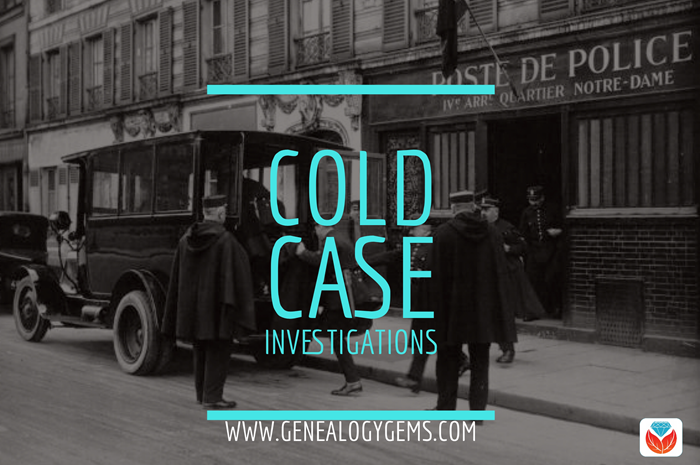
I heard recently from Lydia with these intriguing questions:
My great great grandpa William John Gabriel Nelson disappeared one day, never coming home from work. It was family lore that he had been “shanghai’d.” But even as a child the story didn’t add up. [Through a] few other mentions of the account throughout the years, and recently reconnecting with cousins through Ancestry.com/DNA and your advice to just email DNA matches, I have a growing reason to believe my great-grandfather was murdered. An even bigger fear is that my grandfather may have been the one to do it.
All parties involved with this are now dead, so follow-up is impossible with them. But I’m wondering about contacting the Los Angeles Police Department (LAPD) or the library to determine if indeed there was a cold case, missing persons report or John Doe. Since this happened in the mid 1940’s, would I contact the LAPD or is this now a job for a historian?
As a citizen, Lydia can certainly contact the LAPD here. It might take a bit of persistence to get to the right person or resource. I would start by asking for how you can find out the status of a cold case from the year in question.
Here are 4 ways to follow up on your own criminal ancestors’ cold cases:
1. Look for cold case files online.
As I often say, all good searches start online because they will help you prepare to go offline. In other words, not everything is online, but searching online first will give you a lay of the land, revealing what is available, who to contact, and where to go in person. Start with a Google search such as LAPD cold cases. The search results include several good leads:
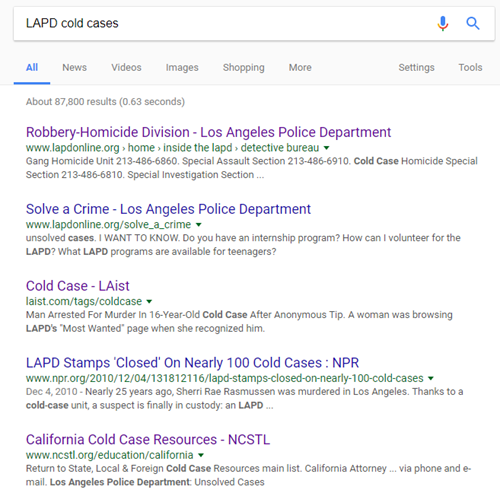
With a case like Lydia’s that is over 70 years old, I wouldn’t expect to pull it up in an online database (though you never know!) But I do see several sites here that provide phone numbers to gain access to those who can lead you in the right direction.
2. Search Google for clues.
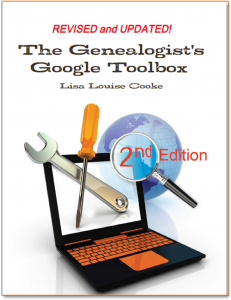 Use Google’s powerful search technology to look for online mentions of the names, places, and dates of your particular case.
Use Google’s powerful search technology to look for online mentions of the names, places, and dates of your particular case.
In Lydia’s case, she might begin with keywords relating to her great-grandfather’s disappearance, with his name, year, and the place he was last seen. Including descriptive keywords such as disappear, mystery, vanished or murder might also yield helpful results.
Learn more about effective search techniques in my book, The Genealogist’s Google Toolbox, Second Edition.
3. Check old newspapers.
Newspapers in your ancestor’s hometown (or further afield) may have mentioned the incident. With a common name like William (or Bill) Nelson, you may need to weed out the overabundance of unwanted results you get. Let me show you how I did this in
GenealogyBank, a popular genealogical newspaper website:
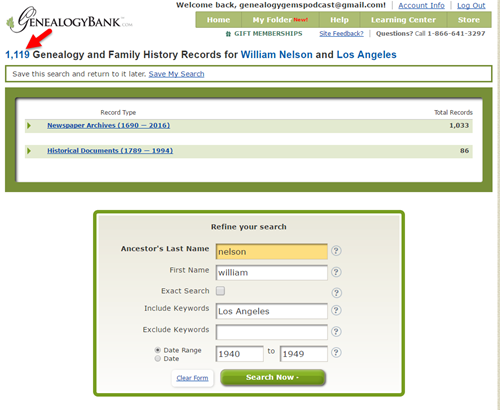
The initial results of searching GenealogyBank (above) for the terms William Nelson and Los Angeles brought up over 1,000 search results! (The red arrow points to the tally.) Since I don’t like wasting valuable research time on irrelevant results (who’s with me?!), I refined the search. I specified Nelson as a last name, William as a first name, Los Angeles as a keyword, and I added a date range: the decade during which he disappeared. Next, I limited my search to Los Angeles-area newspapers, shown below:
This search narrows results down to under 200: a robust number, but at least manageable to look through for relevant material.
I want to be able to use these same search parameters in the future, so I click
Save My Search. The search now appears in
My Folder for future reference.
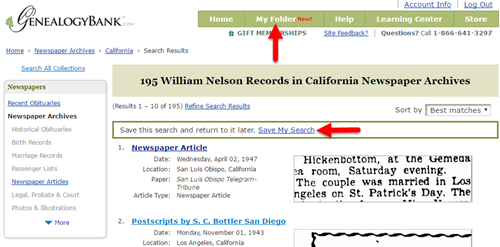
4. Look for criminal records.
 If you knew (or suspected) that a relative was prosecuted for a crime, it’s time to start looking for records relating to the criminal case. There may be several kinds:
If you knew (or suspected) that a relative was prosecuted for a crime, it’s time to start looking for records relating to the criminal case. There may be several kinds:
- In cases of suspicious death (where there was a body, unlike Lydia’s case), look for any surviving coroner’s records.
- If a trial may have occurred, research the jurisdiction to find out what court would have handled it, and then look for files relating to the case.
- If an ancestor may have served time, look for prison records. Genealogy Gems Premium podcast episode 29 is devoted to the topic of prison records.
Get inspired!
Read this article about a woman who was researching not one but two mysterious deaths on her family tree.
Want to help investigators lay to rest their own cold cases?
Click here to read about the Unclaimed Persons Project and how you can help.

by Lisa Cooke | Jun 30, 2017 | 01 What's New, British, Canadian, Digital Archives, Findmypast, Newspaper, Photographs, Records & databases, Scottish Genealogy
New digital archives for genealogy host Canadian photos and history magazines, Oregon historical records, and Virginia newspapers. Also this week: Google Maps additions in Canada; Norfolk, England records; England and Wales criminal records; Scottish Presbyterian church records and Glasgow newspapers; and criminal records from England/Wales.

Canada: History Magazines in Digital Archive
Canada’s History Society has launched a new, mobile-responsive digital archive. Canada’s History launches with the entire run of a unique magazine: The Beaver, which explored the history of the Far North from fur-trade colonial days to modern times. “In addition to The Beaver, the archive will feature issues of Canada’s History magazine as well as Kayak: Canada’s History Magazine for Kids,” says a news article. The project was partnered by the Hudson’s Bay Company History Foundation. Its website is also worth exploring if your family history reaches into that part of the world.
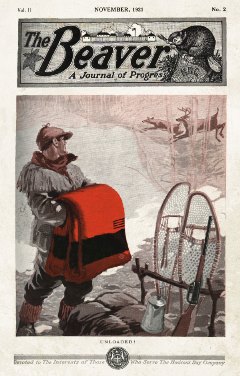
Image courtesy Canada’s History Society.
Canada: Photo Archive
More than 100,000 digitized photos represent the beginning of a new Canada photo archive available to subscribers of The Globe and Mail, which is celebrating its 173rd birthday this year along with the country’s 150th. According to a news article, photo topics “range from a 1901 picture of the Forester’s Arch being erected on Bay and Richmond streets for a royal visit to a Canadian astronomical discovery in the late 1990s. You can search the archive by date or Globe photographer, and there are special collections that cover different aspects of Canadian life.”
England: Norfolk Records
Subscription website Findmypast.com has added to these collections of genealogical records on Norfolk, England (see a Findmypast special offer at the bottom of this post):
- Norfolk Marriage Bonds, 1557-1915. “Browse 444 volumes of marriage bonds from four ecclesiastical courts: the Archdeaconry of Norfolk Court, the Archdeaconry of Norwich Court, the Dean & Chapter of Norwich, and the Diocese of Norwich Consistory Court.”
- Norfolk Non-Conformist Church Records, 1613-1901. Browse “11 registers covering various denominations including Methodist, Quaker, and Baptist in the parishes of Attleborough, Aylsham, Kenninghall, Norwich, Tasburgh, Walsingham, and Wymondham.”
- Norfolk Poor Law Union Records, 1796-1900. Browse “55 volumes covering 20 unions across Norfolk to discover whether your ancestors fell on hard times. Explore 10 different types of records, ranging from baptism and report books to relief lists and court orders.”
England and Wales: Criminal Records
Findmypast.com has finished adding a final installment to its Crimes, Prison and Punishment Collection. About 68,000 records were added that may help you “uncover ordinary and extraordinary stories of criminals, victims and law enforcers from Georgian highway robbers to Victorian murderers, Edwardian thieves, and a whole host of colorful characters in between!”
Scotland: Glasgow Newspapers
The British Newspaper Archive has added the following to its collection of Glasgow newspapers:
- Glasgow Evening Citizen: added the years 1879-1892, so the current collection now tops 20,000 pages and covers 1866-1890.
- Glasgow Evening Post: added the years 1881-1890. The total collection of over 14,000 pages and covers 1867-1890.
Scotland: Presbyterian Church Records
More than 36,000 Presbyterian church records, covering 1744 to 1855, have been added to ScotlandsPeople, a website maintained by the National Records of Scotland. “The 20,255 births and baptisms (1744–1855), 10,368 marriages and proclamations (1729–1855) and 5,422 death and burial records (1783–1855) may be especially helpful for anyone searching for a person who was born or baptized, married, or died before the introduction of statutory registration in 1855,” states an article on the site.
 United States: Oregon Digital Archive
United States: Oregon Digital Archive
The Oregon Historical Society has just launched OHS Digital Collections, a new resource for researching Oregonians on your family tree. “This new website allows online public access to a rich variety of materials from the OHS Research Library, including items from the manuscript, photograph, film and oral history collections,” states a Hillsboro Tribune article. More content is planned for this new site, so check back periodically.
United States: Virginia Newspapers
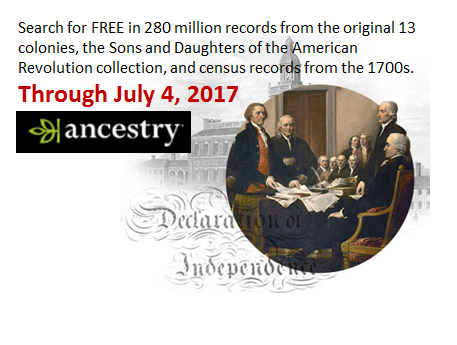 The Virginia Newspaper Project is putting the Library of Virginia’s collection of Civilian Conservation Corps (CCC) newspapers on Virginia Chronicle, a free digital newspaper archive with nearly a million pages. According to an announcement, “The camp newspapers in the LVA’s collection, published from 1934 to 1941 by the young men of the CCC, were mostly distributed in camps throughout the Commonwealth, though a handful are from locales outside Virginia….[The camp newspapers] offer a vivid picture of camp life during the Depression…[and] are also packed with the names of people who were active in the CCC–you might find a mention of one of your relatives among the pages. Click here to learn more about the CCC and the newspapers they produced.”
The Virginia Newspaper Project is putting the Library of Virginia’s collection of Civilian Conservation Corps (CCC) newspapers on Virginia Chronicle, a free digital newspaper archive with nearly a million pages. According to an announcement, “The camp newspapers in the LVA’s collection, published from 1934 to 1941 by the young men of the CCC, were mostly distributed in camps throughout the Commonwealth, though a handful are from locales outside Virginia….[The camp newspapers] offer a vivid picture of camp life during the Depression…[and] are also packed with the names of people who were active in the CCC–you might find a mention of one of your relatives among the pages. Click here to learn more about the CCC and the newspapers they produced.”
 Special offer: Through July 2, 2017, get your first month of Findmypast.com World Subscription for just $1.00! In addition to unparalleled record content for England, Scotland, Ireland and Wales, Findmypast has added tons of great content to its US and Canada collections.
Special offer: Through July 2, 2017, get your first month of Findmypast.com World Subscription for just $1.00! In addition to unparalleled record content for England, Scotland, Ireland and Wales, Findmypast has added tons of great content to its US and Canada collections.
Bonus! Get an exclusive subscriber-only webinar, 20 Unmissable Resources for Tracing Your British and Irish Ancestors, when you sign up!
Full disclosure: This post contains affiliate links and Genealogy Gems will be compensated if you make a purchase after clicking on these links. Thank you for supporting Genealogy Gems!
by Lisa Cooke | May 22, 2015 | 01 What's New, Records & databases
Every Friday, we blog about new genealogy records online. Might these collections include your ancestors? This week: Civil War stereographs, Dublin workhouse registers, Illinois naturalizations, a Jersey digital archive and Oregon motor registrations and offenses. Don’t miss our Google tip at the end!
CIVIL WAR STEREOGRAPHS. “The Library of Congress has acquired 540 rare and historic Civil War stereographs from the Robin G. Stanford Collection,” says a press release. “The first 77 images are now online, including 12 stereographs of President Lincoln’s funeral procession through several cities and 65 images by Southern photographers showing South Carolina in 1860-61. The images can be viewed in this gallery within the Library’s Prints and Photographs Online Catalog. More images will be added each month, until all are online.”
DUBLIN WORKHOUSE REGISTERS. More than 1.5 million Dublin workhouse registers, 1840-1919 are now searchable for FindMyPast subscribers. Records include both images and transcripts, and may contain names, marital status, occupation, religion, age, birth year, admission year, name of workhouse and (on images) details about family, condition upon admitttance and date left workhouse or died.
ILLINOIS NATURALIZATIONS. Over a half million digitized images are searchable for free at US, Illinois, Northern District Petitions for Naturalization, 1906–1994 at FamilySearch.
JERSEY HERITAGE DIGITAL ARCHIVE. Over 300,000 items are now searchable at the subscription website Jersey Heritage Archives & Collections Online. Featured collections include registration cards of 30,000+ Channel Islanders who were there during the WWII German occupation. You’ll also find Jersey parish records dating to 1842 and (under Superintendent Registrar) parish registers from 1540-1842 and post-1842 civil marriage records.
OREGON MOTOR VEHICLE REGISTRATIONS AND CONVICTIONS for 1911-1946 are now searchable by Ancestry subscribers. Registrations include license number, name and address of the vehicle owner (including county in parentheses), make of car, motor number, model or year of manufacture and type of body. Records of convictions name the offender, date, offense, license number, court, county and the amount of any fines.

Tip of the week: Whenever you look at any record of an ancestor, ask what additional documents, images, video footage or historical material this record points you toward. For example, you might learn from an above record that Grandpa drove a 1935 Auburn Speedster or that a relative suffered from the German occupation on Jersey. Google searches on these niche topics can lead you to a Speedster photograph or historical materials (including footage) on the occupation, like this interview with a survivor of the German occupation. Learn how to search for gems like these in Lisa’s totally-revised, updated 2nd edition of The Genealogist’s Google Toolbox.
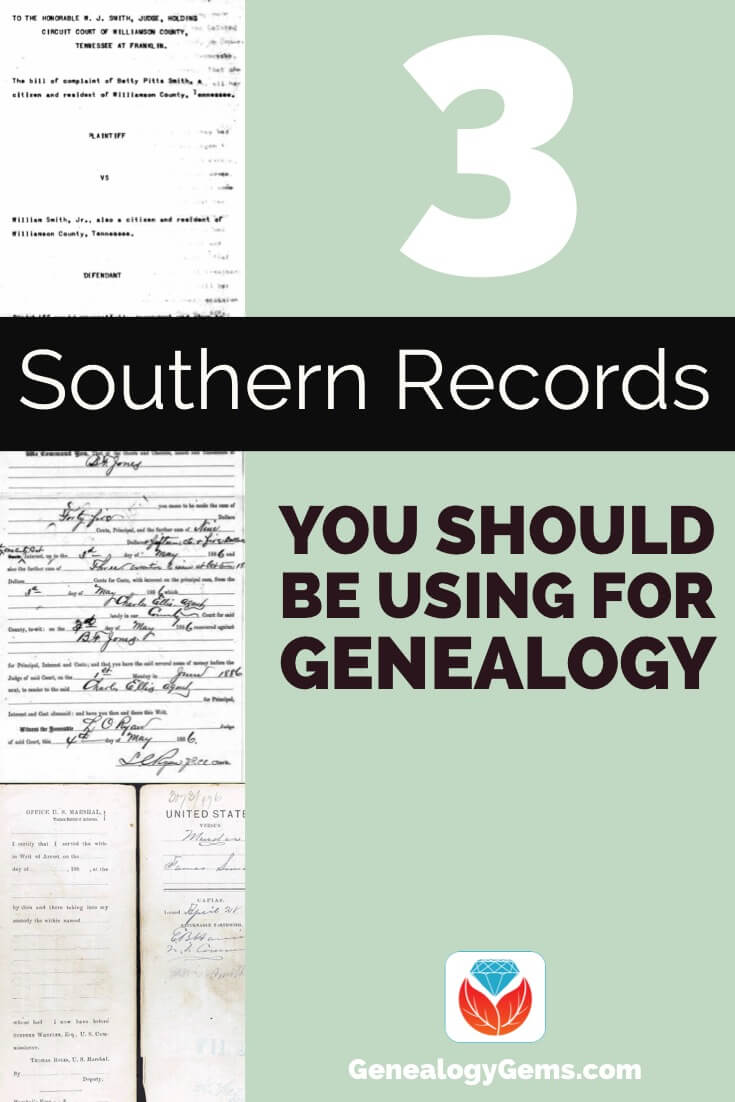


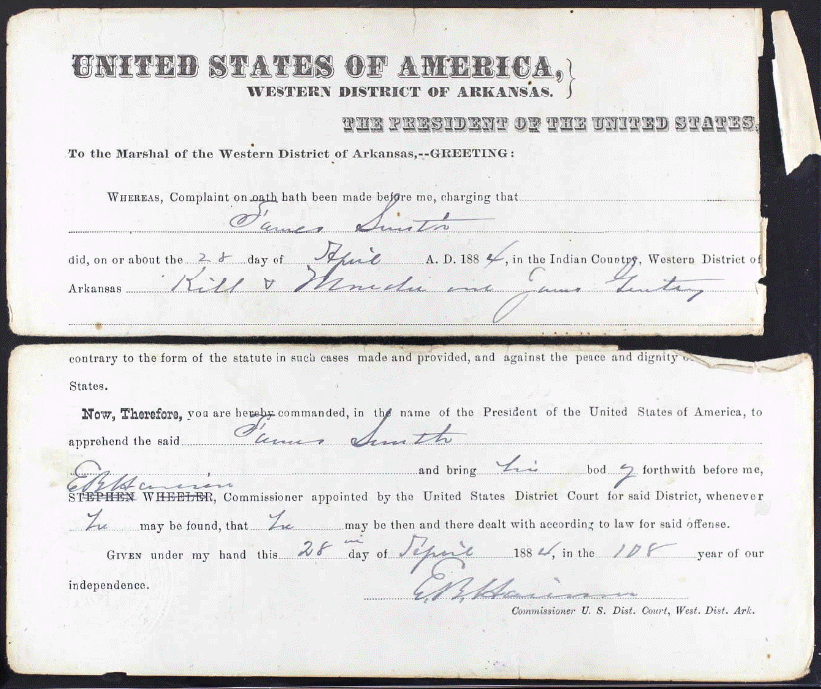
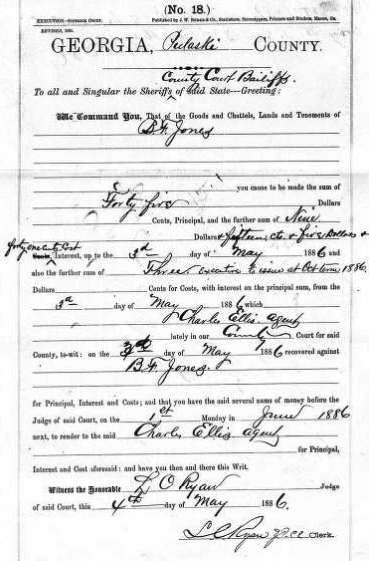
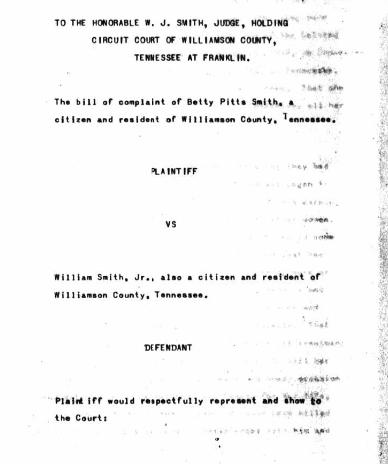
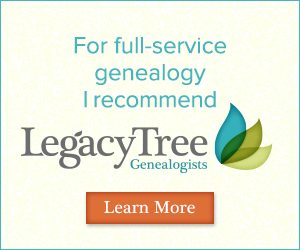




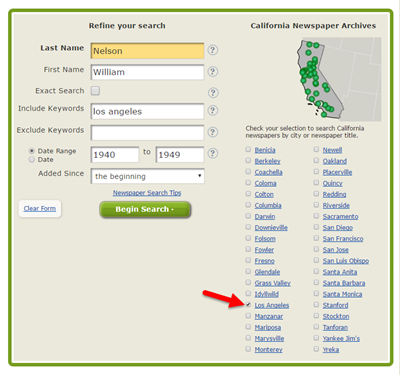







 Special offer: Through July 2, 2017, get your first month of Findmypast.com World Subscription for just $1.00! In addition to unparalleled record content for England, Scotland, Ireland and Wales, Findmypast has added tons of great content to its US and Canada collections.
Special offer: Through July 2, 2017, get your first month of Findmypast.com World Subscription for just $1.00! In addition to unparalleled record content for England, Scotland, Ireland and Wales, Findmypast has added tons of great content to its US and Canada collections.



